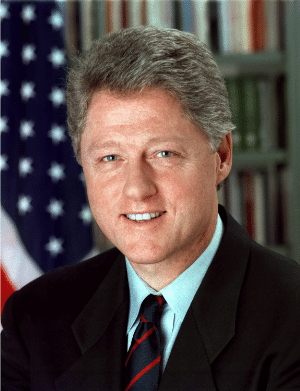- About Us
- Training
- Consultancy
- Teambuilding
- Calendar
- News
- Contact
-
-
Search now
-
About Us+−
-
Training+−
-
Consultancy+−
- Team Building
- Calendar
- News
- Contact
-

Dr. Taibi Kahler is the founder of Process Communication Model®, one of the most useful methodologies for personality analysis, because it can be applied in real time during an interaction, without using a questionnaire. He was born at 30th of June 1943 in Kewanna, Indiana, United States of America. His father, George Kahler died in combat during the Second World War in April 1945. During his childhood Taibi stayed in Hammond, Indiana where he was raised by his mother Madelyn. In an interview, Taibi remembers about this period in his life as being dominated by financial poverty, but also a lot of love from his mother.
He studied at Hope College in Holland, Michigan, then he enlisted in Purdue, University where he graduated with a bachelor’s degree in English Literature and then a master degree and a PhD in Child Development and Family Life.
Currently, Taibi Kahler lives in Hot Springs Village, Arkansas, together with his wife Shirl and he has two sons from his first marriage.
 While he was working at his PhD and was an intern at a private psychiatric hospital, Taibi Kahler became interested in Transactional Analysis. He learned about the model from Dr. Edgar Stuntz and started to research on his own how he can apply the model on his patients. He developed a close relationship with Dr. Hedges Capers who was a friend and colleague with Dr. Eric Berne, the founder of Transactional Analysis methodology. In 1975 he became the director of Transactional Analysis Institute from South Carolina.
While he was working at his PhD and was an intern at a private psychiatric hospital, Taibi Kahler became interested in Transactional Analysis. He learned about the model from Dr. Edgar Stuntz and started to research on his own how he can apply the model on his patients. He developed a close relationship with Dr. Hedges Capers who was a friend and colleague with Dr. Eric Berne, the founder of Transactional Analysis methodology. In 1975 he became the director of Transactional Analysis Institute from South Carolina.
He focused his work on how to help therapists to have a better communication with patients and continued to study how our personality can influence the way we interact with others. During this period of his life, he noticed that no matter the diagnostic that patients had, they manifested for short periods of time some defensive behaviours, just before entering a distress state. Observing furthermore, he identified six subtle combinations of words, tones, gestures, postures and facial expressions that were uniquely associated to a defensive behavioural pattern that he called Driver. Identifying the Driver, Taibi was able to predict the more profound distress behaviours that will follow during the interaction (attack, revenge or victimization).
After he discovered Drivers, Taibi Kahler wrote The Miniscript theory for which he received in 1977 the Eric Berne Memorial Scientific Award from the International Transactional Analysis Association (ITAA). Miniscript describes for the first time the distress sequences that were later matches with the six personality types in Process Communication Model®. The paper analyses first degree distress that manifest through Drivers, the deeper second-degree distress that is characterized by racket emotions and emotional masks, and the third-degree distress level that can lead to depression and psychological disorders. These distress sequences can be identified through second-by-second behavioural observations (words, tones, gestures, postures, facial expressions) and in this way therapists can predict with a high degree of accuracy certain behaviours and improve the progress of their patients.
Dr. Taibi Khaler’s involvement in International Transactional Analysis Association continued with the positions of Board Member, Vice President and Guest Editor in Transactional Analysis Journal. Here he led several research projects in the 1970s and authorized scientifical articles.
His researched continued especially in the period in which he worked with NASA and revealed unique correlations between the unique distress sequences developed in The Miniscript and other positive and neutral behavioural traits. Furthermore, Taibi determined that each set of personality traits corresponds to a unique personality type that includes:
Taibi’s research showed that each one of us have all the six personality types but they are distributed differently in our personality architecture and they have different intensities. One of the six personality types is the personality base of every person, having a stronger influence in their behaviours. He developed Personality Pattern Inventory (PPI), a psychometric tool that helps us determine the personality architecture of someone, Process Therapy Model (PTM) – a methodology that can be used in psychological and psychiatric therapies and Process Communication Model® (PCM) – a methodology that can be applied by every individual in order to improve communication and interaction with others.
Basically, the history of PCM® begins with The Miniscript that developed in Process Communication Model® methodology that was the subject of several scientifical researches from 35 Universities and the theme for 15 PhD dissertations. Presently the model was validated by 1 million profiles and it is explained in several books and scientifically articles.
In 1982, Taibi started the company Khaler Communication Inc. (KCI) in order to make PCM® available for the broad public and with this occasion he created certification training programs, standards and a guide for the correct use of PCM® in business and personal fields. In 2014 Taibi Kahler sold the company to Kahler Communication France SARL that is managed by Cyril Collignon. He remained the Emeritus President in charge of approving any methodology changes.
The practical applicability of Process Communication Model® through second-by-second observation remains the main element that makes the methodology useful. Taibi Kahler says that a theory is not complete until it can be translated in the language of an eight-year-old.
 Dr. Terrence (Terry) McGuire was the Lead Psychiatrist for Manned Space Flight at NASA where he basically evaluates potential candidates before they join space missions and he observed their mental fitness constantly. In 1977 he heard about Taibi’s research and invited him to use his evaluation method in parallel with NASA standard evaluation process that McGuire utilized at the time and consisted in a two hours interview. Taibi Kahler assisted at the first 10 minutes of the interview, noted his observations and exited the room. After evaluated a significant number of astronauts they compared the results. The conclusion was surprising – in the 10 minutes observation time, Taibi Kahler learned more pertinent information about each candidate than in the whole interview, as Terry McGuire stated.
Dr. Terrence (Terry) McGuire was the Lead Psychiatrist for Manned Space Flight at NASA where he basically evaluates potential candidates before they join space missions and he observed their mental fitness constantly. In 1977 he heard about Taibi’s research and invited him to use his evaluation method in parallel with NASA standard evaluation process that McGuire utilized at the time and consisted in a two hours interview. Taibi Kahler assisted at the first 10 minutes of the interview, noted his observations and exited the room. After evaluated a significant number of astronauts they compared the results. The conclusion was surprising – in the 10 minutes observation time, Taibi Kahler learned more pertinent information about each candidate than in the whole interview, as Terry McGuire stated.
From this moment forward a strong collaboration was born between Taibi and NASA. Process Communication Model® was the main tool for psychological assessment up to 1996 and contributed to the improvement of communication, motivation, evaluation, selection of astronauts, training and team management.
 În 1984 Dr. Taibi Kahler was invited by Hillary Clinton to deliver a private three days training to Bill Clinton, at the time Governor of Arkansas, and some close friends. In the same time, Taibi assisted the Clintons to identify and manage the communication with a person that was sending death threats to the family. Bill Clinton was impressed by the practical usage of PCM® and wanted to apply the methodology to connect better with his audience in the future campaigns.
În 1984 Dr. Taibi Kahler was invited by Hillary Clinton to deliver a private three days training to Bill Clinton, at the time Governor of Arkansas, and some close friends. In the same time, Taibi assisted the Clintons to identify and manage the communication with a person that was sending death threats to the family. Bill Clinton was impressed by the practical usage of PCM® and wanted to apply the methodology to connect better with his audience in the future campaigns.
Dr. Kahler became a close collaborator of the Clintons and a consultant in future presidential campaigns in communication and psych-demographic analysis. Mainly he offered consultancy for the evaluation of Bill Clinton’s targeted public and the optimal ways to connect with them. He contributed to the editing of Clinton’s speeches and to the strategies applied in debates. Bill Clinton became the 42nd President of the United States of America. In the months that followed the elections, the entire personnel of the White House followed training programs to understand and use PCM®.
Taibi Kahler is a genius. He knows more than personality dynamics than anybody else! William Jefferson Clinton, former President of the United States of America (1993-2001)
To learn mode about Process Communication Model® please visit PCM communication techniques course.
Refferences
“Historic Event”, retrieved from: http://www.kahlercommunications.com/news.php
Taibi Kahler, Ph.D., “A Brief: Passing Through”, Transactional Analysis Journal, 25:1, January 1995.
Taibi Kahler, Ph.D., “A Brief: Passing Through”, Transactional Analysis Journal, 25:1, January 1995.
Taibi Kahler, Ph.D., The Process Therapy Model – The Six Personality Types With Adaptations, Taibi Kahler Associates, Inc., Little Rock, Arkansas, 2008, p. 3.
Taibi Kahler, Ph.D., The Process Therapy Model – The Six Personality Types With Adaptations, Taibi Kahler Associates, Inc., Little Rock, Arkansas, 2008, p. 4.
Taibi Kahler, Ph.D., RESEARCH DISSERTATION: Predicting Underachievement In Ninth Grade and Twelfth Grade Males With The Kahler Transactional Analysis Script Checklist, Purdue University, 1972, 67 pages; 7306052, https://www.dissexpress.umi.com.
Taibi Kahler, Ph.D., The Process Therapy Model – The Six Personality Types With Adaptations, Taibi Kahler Associates, Inc., Little Rock, Arkansas, 2008, pp. 270-271.
Taibi Kahler, Ph.D., “A Brief: Passing Through”, Transactional Analysis Journal, 25:1, January 1995.
“Winners of the ITAA Eric Berne Memorial Scientific Award 1971 – 1987 and Eric Berne Memorial Award 1994 – 2014”,retrieved from: https://www.itaaworld.org.
Taibi Kahler, Ph.D., Transactional Analysis Revisited, Human Development Publications, Little Rock, Arkansas, November 1978.
Taibi Kahler, Ph.D., “A Brief: Passing Through”, Transactional Analysis Journal, 25:1, January 1995.
Terence F. McGuire, M.D, “PCM, Under Cover”, The Journal of Process Communication, 1:1, July, 2013, p. 86.
Taibi Kahler, Ph.D. with Hedges Capers, Div. M., LHD., “The Miniscript”, Transactional Analysis Journal, 4:1, pp. 26-42, January 1974.
Terence F. McGuire, M.D, “PCM, Under Cover”, The Journal of Process Communication, 1:1, July, 2013, 87-89.
Taibi Kahler, Ph.D., The Process Therapy Model – The Six Personality Types With Adaptations, Taibi Kahler Associates, Inc., little Rock, Arkansas, 2008, pp. 20-21.
Taibi Kahler, Ph.D., “45 Years and Counting... on You”, The Journal of Process Communication, 1:1, July, 2013, p. 14.
Pat Stansbury, “Report Of Adherence To Theory Discovered When The Personality Pattern Inventory Was Administered To Subjects Twice”[1990], The Process Therapy Model – The Six Personality Types With Adaptations, Taibi Kahler Associates, Inc., Little Rock, Arkansas, 2008, p. 37, 276.
Taibi Kahler, Ph.D., The Process Therapy Model – The Six Personality Types With Adaptations, Taibi Kahler Associates, Inc., Little Rock, Arkansas, 2008, p. 38.
Taibi Kahler, Ph.D., Personality pattern inventory (revised). Little Rock: Kahler Communication, Inc., 1996

Find out the story of Dr. Taibi Kahler in a well documented article and discover how he created PCM® methology and collaborated with NASA.

Until not long ago, selling was a very well-articulated process, in which the position of sales agent was quite controversial. But how are things today?